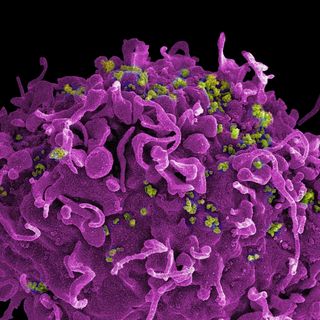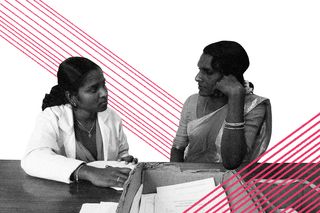
Trans Persons’ Council Recommends Revision in Medical Curriculum, Sensitization of Doctors
There is a “need to prevent” gender affirmative surgeries by medical professionals who are “not trained or well-equipped.”

The National Council for Transgender Persons in India has come up with a set of recommendations suggesting a revision of the medical curriculum in India, in a bid to produce sensitized medical practitioners. The idea is to truly equip them to provide gender-affirmative healthcare.
The body was established in 2020 under the provisions of the Transgender Persons (Protection of Rights) Act, 2019. It is led by India’s Minister of Social Justice and Empowerment.
The council expressed the need for orientation programs to sensitize medical professionals to gender-affirmative healthcare. Subsequent to this, it recommended identifying specialists in each state, who would then be allowed to perform gender-affirmative surgeries.
“[It] is not a simple one-time surgery. It requires all medical professionals involved to be non-judgmental, post-operative care, and proper pain alleviation. So it can’t involve just one surgeon, but all the professionals who are necessary to make the process possible have to be on board,” Dr. Sameera Jahagirdar, a critical care specialist in Pondicherry, had explained. She is a trans woman herself and has developed a protocol for gender-affirmative surgeries in India.
Urging medical professionals to be sensitized is not just in furtherance of social justice; it’s a matter of life and death — literally. In July, Anannyah Kumari Alex, a 28-year-old trans woman from Kerala, died by suicide after experiencing “excruciating” pain from the gender-affirmative surgeries she had undergone last year. The pain was beginning to hamper her day-to-day life. “I’m standing before you as a victim of gross medical negligence,” she had said in an interview prior to her death.
“[T]he incident is a marker of how trans bodies are often neglected and treated with apathy by the entire healthcare system,” Rohitha Naraharisetty wrote in The Swaddle earlier this year.
Related on The Swaddle:
Gender‑Sensitive Training Manual May ‘Traumatize’ Students, Says a Complaint to Child Rights Body
“Doctors and medical staff who are not trained in gender affirmative or inclusive medicine… tend to pathologize trans people as having ‘gender identity disorders,’ in addition to denying or providing inadequate treatment for various health issues,” she added.
Acknowledging the issues with gender affirmative healthcare in the country, the council emphasized the “need to prevent” gender affirmative surgeries by medical professionals who are “not trained or well-equipped” due to “such operations resulting in casualties” at times.
“[D]octors at times don’t even understand the problems transgender persons face,” a senior government official told The Print. “There have to be some changes in the curriculum to sensitize them. If this starts at the level of [the] curriculum itself, it will have a far-reaching effect,” the official added.
It is also pertinent to point out that according to a 2019 study, gender-affirmative healthcare in parts of the country is actually “rare or [even] non-existent.” The “absence of training” for medical professionals in government hospitals was cited as one of the major reasons for the existing state of affairs.
This forces individuals opting for gender-affirmative surgeries to seek private hospitals that are not only unaffordable for many but are also known to evade accountability. It also makes surgical options for trans individuals seem like “‘luxury’ cosmetic services rather than essential welfare measures to address the right to live [for] a certain section of people in society,” the study had noted.
To address this, the council highlighted the “need for medical insurance covering the medical requirements” and also recommended exploring the prospect of “CSR participation in the transgender welfare program.”
The lack of gender-affirmative healthcare is just one of the many hurdles the trans community faces in modern India. “It’s a combination of problems — no acceptance of trans bodies because there is no knowledge of trans bodies, no education. Therefore, there is no infrastructure that supports transgender people,” Amrita Sarkar, a trans woman activist, had told The Swaddle in 2019, adding that “acceptance can only come at a later stage, when the healthcare service is there. But [right now] it’s not.” Perhaps, implementing the new set of recommendations can change that to some extent.
Devrupa Rakshit is an Associate Editor at The Swaddle. She is a lawyer by education, a poet by accident, a painter by shaukh, and autistic by birth. You can find her on Instagram @devruparakshit.
Related


Baby Teeth Can Help Identify Children at Risk of Mental Health Issues
